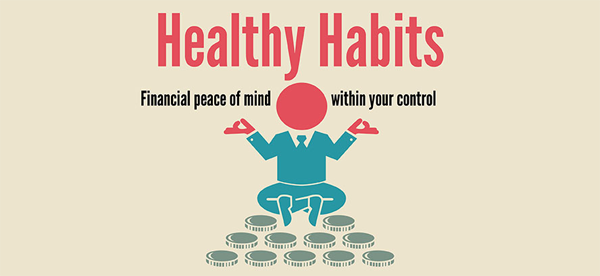Financial wellness could be habit-forming
Anyone seeking a worthy New Year’s resolution needs look no further than the Healthy Financial Habits website, where users can tackle everything from creating a well-organized financial filing system to taking stock of present and future financial needs—all with helpful, downloadable worksheets.
The newest online resource from CU Employee Services, Healthy Financial Habits endeavors to help busy people cultivate behaviors that contribute to financial well-being.
It can be daunting to commit to setting financial goals and confronting your finances—good and bad. That’s why Healthy Financial Habits urges individuals to start small by focusing on one or two of the site’s 10 habits.
“If you’re motivated to do all 10 at once – more power to you!” says Katie Sauer, director of financial wellness, education and research in Employee Services. “But if you’re like me, then you’ll fare far better by working on one new habit each month.”
The site’s recommended first step, tracking your spending and financial standing, urges users to take crucial but often dreaded tasks: raising personal awareness of financial reserves by creating a tracking sheet, a budget and a regular reminder to request credit reports.
From there, Healthy Financial Habits sets users on course to establish good practices for a lifetime of financial well-being. Some items are relatively simple: Using strong passwords and changing them regularly. Shred personal financial documents, when appropriate. Start reading and talking to unbiased, reliable sources of financial information. And though you don’t need to become Suze Orman, you should stay abreast of what’s happening in financial markets.
Healthy Financial Habits also asks users to challenge themselves by setting and maintaining goals, establishing or updating emergency financial plans, and sitting down for an annual personal financial checkup. Its final task (perhaps most difficult of all): Practice some daily restraint by pausing before making any financial decisions – especially the seemingly small ones.
“The last habit — sleep on It — is the single best piece of financial advice I’ve ever been given,” Sauer says. “It is critical to our long-term financial well-being to be in conscious control of our financial decisions and to not make them when we are either caught up in emotions or are just cruising on autopilot.”


